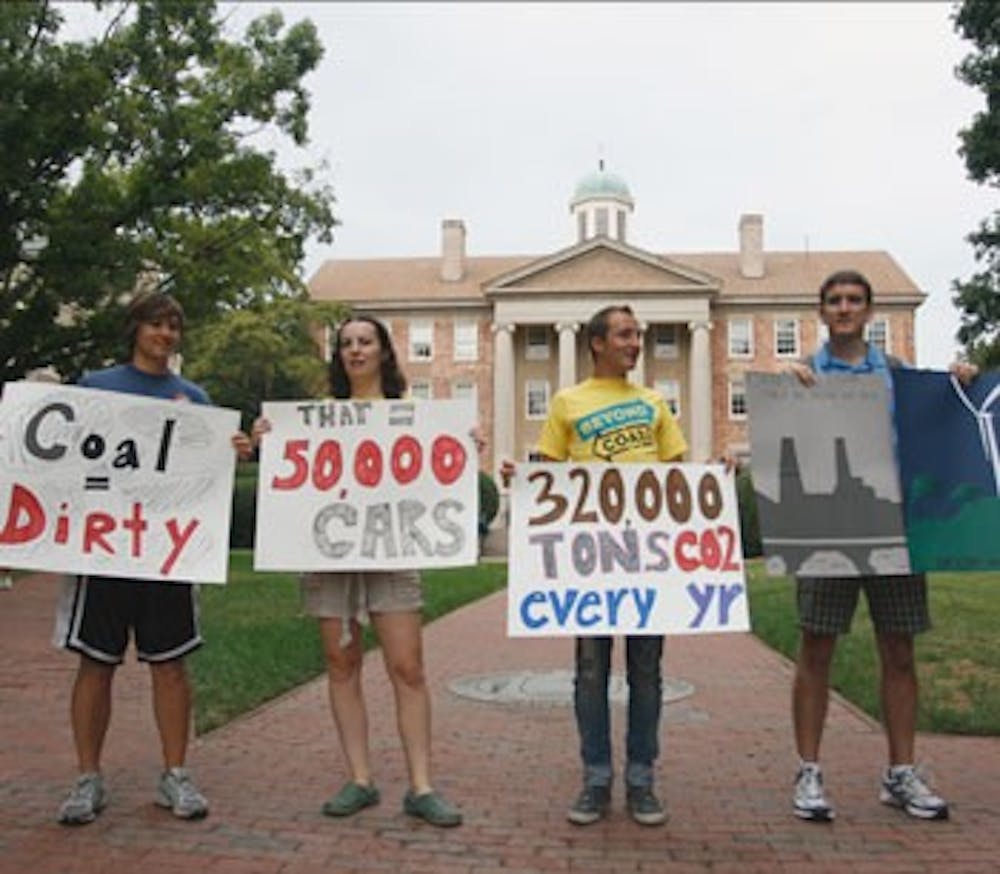A group of students and national organizers united Wednesday in front of South Building to push UNC toward a nationwide effort to rid college campuses of coal.
The focus of the rally was the UNC Cogeneration Facility, a power plant a half-mile off campus that burns coal and natural gas.
A line of five students drew little attention with their protest but delivered a packet of information to the chancellor’s office in hopes of changing University policy.
Outside the building, they held posters opposing the plant and claimed that the facility’s daily carbon emissions equaled that of 50,000 cars.
Ray DuBose, UNC’s director of energy services, said the plant’s main purpose is to provide UNC and the hospitals with steam, used for heating, humidification, domestic hot water, sterilization and making distilled water. The plant is looking to shift from coal and natural gas to biomass fuel.
“It’s absolutely necessary that we do not sacrifice the reliability of the facility because steam is critical to the University and the hospitals,” DuBose said in an interview.
Laura Stevens, a representative from the national Sierra Club’s “Moving Campuses Beyond Coal” campaign, which organized Wednesday’s event, said UNC was one of 30 campuses on a “beyond coal” mission.
Stevens discussed the environmental impact of carbon emissions, saying a temperature increase of four degrees would make North Carolina’s climate similar to Florida’s.
“UNC has traditionally been a leader in solving some of the most critical problems facing our nation, and we hope coal will be no exception,” Stevens said.
Sara Mishamandani, a junior environmental health major in the Gillings School of Global Public Health, spoke about the physical impacts of burning coal.
She attributed 20,000 hospital visits and 38,000 annual deaths to adverse health effects from coal power plants.
Mishamandani added that she hoped students would participate in UNC’s effort to reduce coal use.
“Students and young people have been at the forefront of every social justice movement in recent history,” she said.
Last year, students voted to renew a $4 per semester renewable energy fee that has been in place since the 2004-05 school year. The money is used for renewable energy projects on campus. The fee has generated more than $200,000, said Robert Cox, a UNC faculty member and former president of the Sierra Club.
“I love UNC, and I’m here to support growing the number of students in conversation about the campus’ energy future,” he said.
Cox added that other universities’ efforts have made him optimistic about UNC.
“I am encouraged by other campuses who have already taken steps,” he said.
Contact the University Editor at udesk@unc.edu.
Students protest use of coal

From left to right, Vanessa Bowman-Allen, Susan Capiow, James Collins and Brendon Watson stand near South Building to protest.



